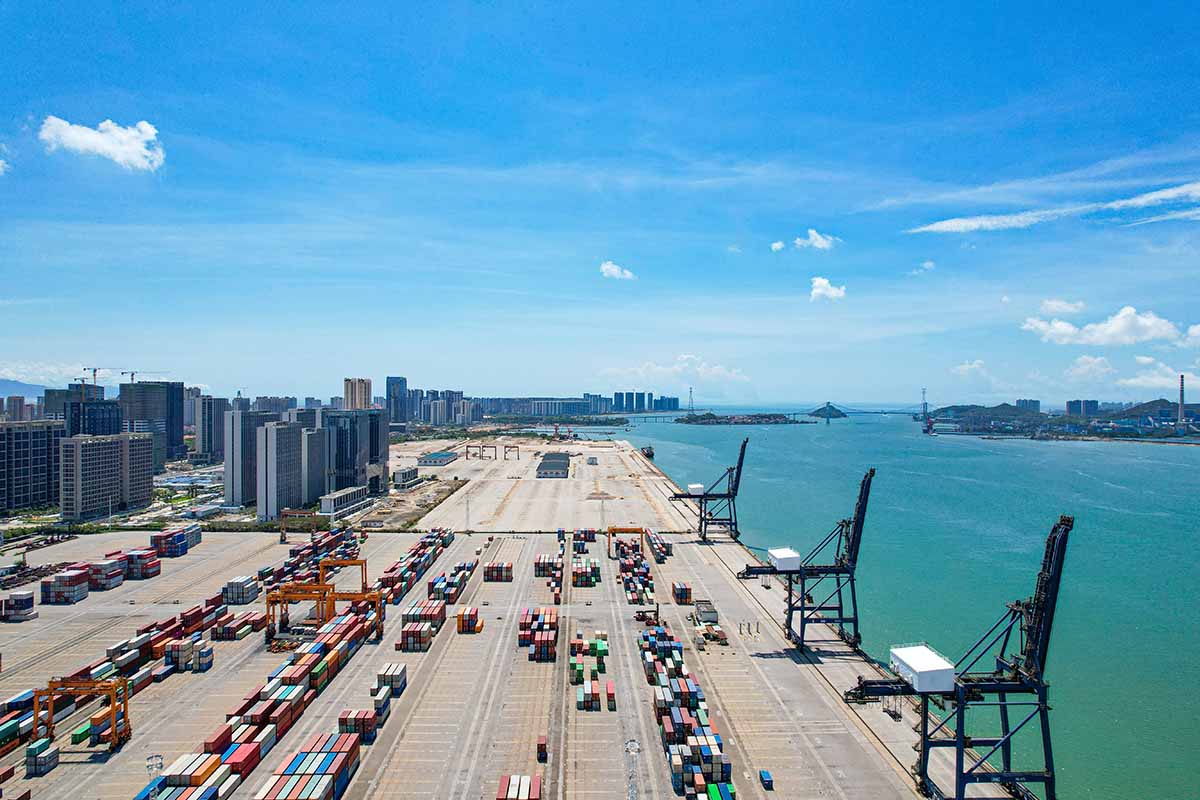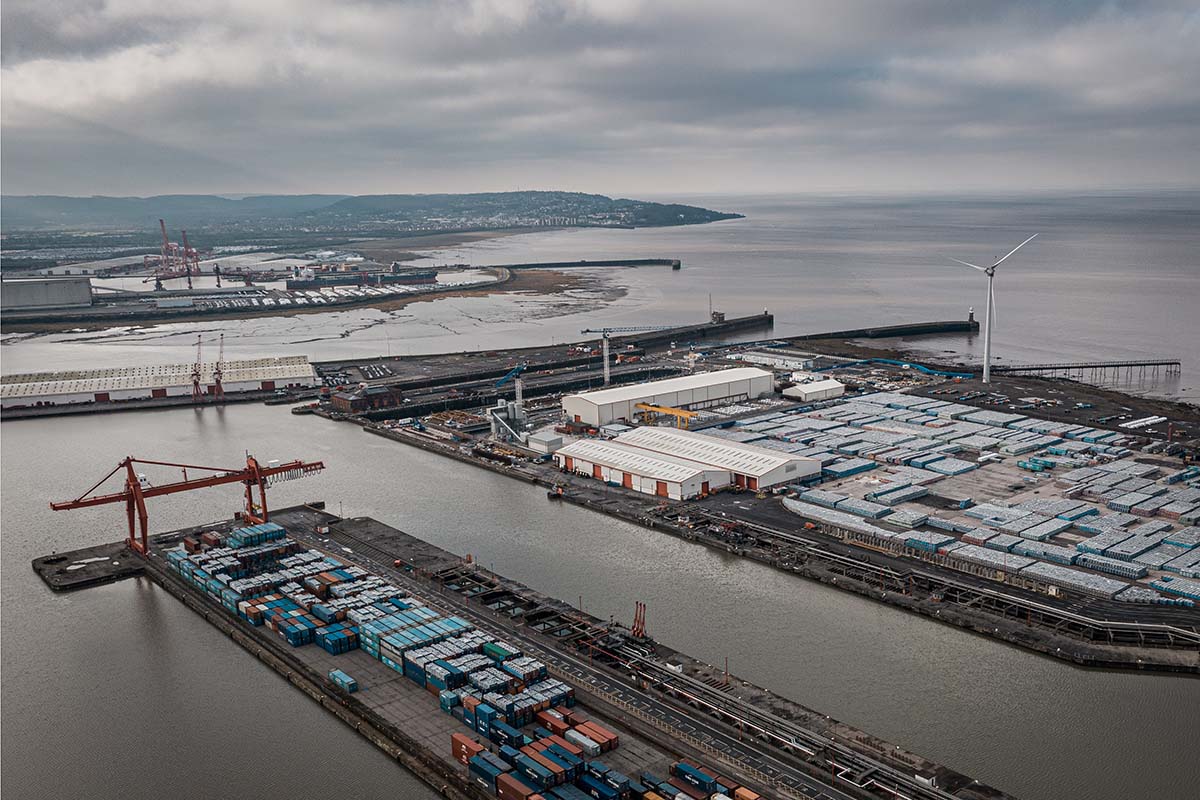Intermodal trucking companies have become an increasingly popular solution for businesses seeking efficient and cost-effective transportation of goods. By combining multiple modes of transportation, such as trains, trucks, and ships, intermodal trucking companies offer a flexible and reliable service that can meet the diverse logistics needs of modern businesses.
One of the primary advantages of intermodal transportation is increased efficiency. By utilizing different modes of transportation in combination with one another, intermodal trucking companies can optimize their routes and delivery schedules to ensure timely and cost-effective transport.
This approach reduces shipping costs and minimizes environmental impact by reducing fuel consumption. In this article, we will explore the benefits of intermodal transportation, including its flexibility in scheduling deliveries and reliability in ensuring secure shipments.
The Advantages of Intermodal Transportation
The utilization of intermodal transportation offers a multitude of benefits that enhance the efficiency and sustainability of supply chain operations. One of the most significant advantages is cost savings. By combining different modes of transportation, such as rail, trucking, and shipping, companies can reduce their expenses on fuel consumption, maintenance costs, and labor expenses
This approach allows businesses to optimize their resources while reducing overall transportation costs in the long run. Intermodal transportation companies offer flexible and reliable services that cater to clients’ specific requirements, ensuring timely delivery at an affordable price.
Another advantage of intermodal transportation is its positive impact on the environment. Combining different modes reduces carbon emissions by using more efficient routes and minimizing fuel consumption per unit transported. Additionally, rail transport produces fewer emissions per ton-mile than trucking alone, resulting in less greenhouse gas emissions into the atmosphere than single-mode transport options.
Intermodal transport also reduces road traffic congestion and wear and tear on infrastructure, thus lowering maintenance costs for local governments and taxpayers. Overall, intermodal transportation proves to be a sustainable solution for modern-day logistics needs while offering cost-effective benefits for businesses looking to save money while improving their environmental impact.
By incorporating multiple modes of transportation, bus
Combining Modes of Transportation for Increased Efficiency
inesses can streamline their supply chain and optimize efficiency, ultimately leading to increased profitability and customer satisfaction. One way to achieve this is through road rail integration, where trucks transport goods from the shipper’s location to a nearby rail yard for further transport via train. This method allows longer distances to be covered efficiently while reducing truck wear and tear.
Another effective means of combining modes of transportation is through intermodal containerization. This involves using standardized containers that can be easily transferred between different modes of transportation, such as ships, trains, and trucks. By utilizing intermodal containerization, businesses can eliminate the need for costly and time-consuming cargo transfers between carriers while ensuring greater security for their goods during transit.
These methods offer significant cost savings and improved logistics management for companies seeking more efficient ways to move goods across long distances.
Flexible Scheduling for On-Time Deliveries
Flexibility in scheduling is a crucial aspect of ensuring timely deliveries, and it can be achieved by using advanced software systems that allow for real-time tracking, customized solutions, automated route optimization, and dynamic adjustments based on changing conditions such as traffic congestion or weather disruptions.
This type of technology enables intermodal trucking companies to stay ahead of the curve and offer their clients reliable delivery services that meet their specific needs. With the ability to track shipments in real time, logistics managers can monitor progress throughout the transportation process and make any necessary adjustments quickly.
Customized solutions are also key when it comes to flexible scheduling. Intermodal trucking companies can work with clients to develop tailored plans that fit their unique requirements. For example, some clients may require expedited shipping options, while others prioritize cost savings over speed.
By working closely with each client and analyzing their shipment data, intermodal trucking companies can create schedules that balance efficiency with flexibility to meet individual needs. This approach improves delivery times and customer satisfaction by providing a personalized service experience.
Reliable Service for Secure Shipments
Ensuring the safe and secure transport of valuable goods is a critical aspect of logistics, and intermodal trucking providers must demonstrate reliability in their service to build trust with their clients. Security measures are essential for any intermodal trucking company, especially when dealing with high-value or sensitive goods. These measures can include GPS tracking, security seals on containers, and surveillance systems at warehouses and loading docks. Intermodal trucking companies should also have strict protocols for verifying drivers’ identities and ensuring that only authorized personnel can access shipments.
In addition to implementing robust security measures, intermodal trucking companies must prioritize customer satisfaction by providing reliable service. Clients expect timely delivery of their goods without damage or loss. To achieve this level of service, intermodal trucking providers must optimize routes, utilize real-time tracking technology, and employ experienced drivers who understand the importance of safety protocols.
By consistently delivering shipments on time and in good condition, these companies can build a reputation for reliability that will attract new clients while retaining existing ones. In summary, reliable service backed by stringent security measures is crucial to improving the intermodal shipping experience and building customer trust.
Frequently Asked Questions
What specific types of cargo can intermodal trucking companies transport?
Refrigerated goods and oversized cargo are two specific types of cargo that intermodal trucking companies can transport. A wide variety of refrigerated goods, ranging from food products to pharmaceuticals, can be safely transported in temperature-controlled containers explicitly designed for this type of cargo.
Similarly, oversized cargo such as heavy machinery, equipment, or vehicles can also be moved long distances using specialized trailers engineered to accommodate these items’ size and weight. Intermodal trucking companies use a combination of trucks, trains, and ships to transport these types of cargo efficiently and cost-effectively across various modes of transportation.
How do intermodal trucking companies handle customs clearance and documentation?
Customs procedures and documentation requirements are crucial aspects of international shipping that intermodal trucking companies must handle. The customs clearance process involves a series of formalities, inspections, and approvals by the relevant authorities to ensure compliance with regulations. Intermodal trucking companies coordinate with customs brokers to manage import and export requirements, including paperwork such as bills of lading, commercial invoices, and customs declarations.
They also ensure that all necessary permits are obtained and fees paid before the cargo is transported across borders. Proper handling of these procedures is essential in avoiding delays, fines, or penalties resulting from non-compliance with regulations. Therefore, intermodal trucking companies have trained professionals who specialize in managing customs procedures and documentation requirements for their clients’ shipments.
Are there any limitations on the distances that intermodal transportation can cover?
Intermodal transportation involves using multiple modes of transportation, such as trucks, trains, and ships, to move cargo from one location to another. The long-distance capabilities of intermodal transportation depend on the type of cargo being transported and the routes available. While intermodal transportation is often used for long-distance shipping, it may not be feasible for small businesses due to high equipment leasing or purchasing costs. However, larger companies may find that intermodal trucking companies can offer cost-effective solutions for their logistics needs when transporting goods over long distances.
How do intermodal trucking companies ensure the safety and security of their shipments?
Intermodal trucking companies ensure the safety and security of their shipments through various security measures, such as GPS tracking, surveillance cameras, and secure parking facilities. Additionally, these companies provide shipping insurance to protect against potential losses or damages during transit.
To maintain high levels of safety and security, intermodal trucking companies offer training programs for their drivers to ensure they are qualified to handle the unique challenges of intermodal transportation. Driver qualifications include proper licensing, experience handling different types of cargo, and compliance with local regulations. These measures help to mitigate risks associated with intermodal transportation while ensuring a safe and secure delivery process for customers.
What technological tools and tracking systems do intermodal trucking companies use to monitor shipments?
Intermodal trucking companies use various technological tools and tracking systems to monitor shipments. GPS tracking makes Real-time monitoring possible, enabling trucking companies to track their trucks and cargo in real-time. This technology helps the companies to ensure that they are aware of any deviations from the planned route or any other issues that may arise during transportation.
Intermodal trucking companies also employ data analytics and predictive maintenance techniques to optimize their operations. These tools help them identify patterns and predict potential problems before they occur, thus enabling them to take preventive measures. Overall, these technologies enhance the efficiency and safety of intermodal trucking operations while ensuring the timely delivery of goods.
Infographic created by JYC Trucking, a trucking services company
Conclusion
Intermodal trucking companies offer an efficient and cost-effective solution for logistics needs. By combining different modes of transportation, intermodal companies can increase efficiency while maintaining reliable service for secure shipments. Intermodal transport offers flexible scheduling options to ensure on-time deliveries, even with unexpected delays.
According to the Intermodal Association of North America, in 2019, the total number of intermodal loads transported was over 17 million. This represents a significant increase from previous years and highlights the growing popularity of this mode of transportation. Additionally, rail intermodal traffic rose by almost 5% in 2020 despite challenges presented by the COVID-19 pandemic.
Overall, intermodal trucking companies are a smart choice for businesses looking to streamline their logistics operations while saving money on transportation costs. With flexible scheduling options and reliable service, they offer a convenient way to transport goods securely across long distances. As more companies recognize the benefits of intermodal transportation, we will likely continue to see growth in this sector in the coming years




















